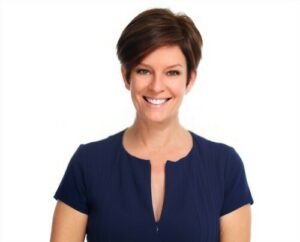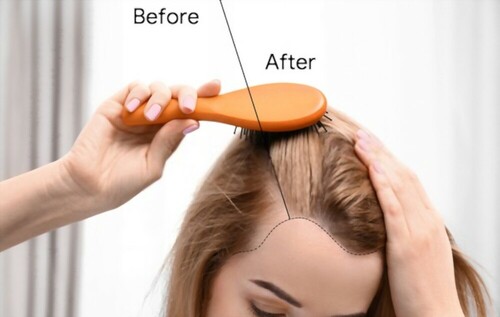Autumn is now upon us, the pumpkins are ripening, and it won’t be long before they start to take centre stage as Halloween draws nearer and pumpkins are carved to be put out on display. But are you aware that the most interesting part of the pumpkin is the seeds? Yes that’s right, the part which usually gets scooped out and just thrown in the trash!

Pumpkin seeds are a rich source of essential fatty acids, minerals and vitamins including linoleic acid (omega-6 and omega-3 fatty acids), linolenic acid, myristic acid, oleic acid, palmitic acid, calcium, iron, magnesium, phosphorus, potassium, zinc, and vitamins C and E, in addition to carotenoids (also known as antioxidants), tocopherols, and sterols including beta-sitosterol.
Back in the 18th century, Austrian farmers in Styria discovered that an oil could be extracted from the dried seeds. Having recognised the value of pumpkin seed oil for therapeutic usage, the Austrian Empress Maria Theresia, declared in 1773 that the oil was too precious to be served as food and belonged to the chemists to produce ointments and wound dressings.
Pumpkin seed oil is extracted from the dried, hulled seeds of the styrian pumpkin using the cold press method in order to retain all of the nutrients and therapeutic benefits of the seed. Known as “Green Gold” due to its dark green colour (although it can also be a rich amber/red by way of an optical illusion called dichromatism), it is used for both culinary and cosmetic purposes. The oil is extremely delicious with a rich nutty flavour, and offers a host of benefits to the body, not least it’s positive effect on prostate and urinary tract health. However, nowadays it is becoming an increasing popular remedy for minimising hair loss and promoting hair growth, although the benefits to the hair are not limited to these alone.
Pumpkin Seed Oil Restores Hair Growth
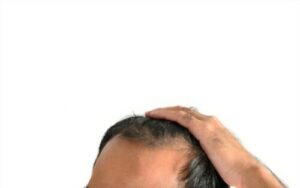 Hair loss is something that affects many of us, with up to 40% of women experiencing some form of it during their lifetime. Meanwhile, up to 70% of men being are being affected by the condition called androgenetic alopecia (AGA) alone. Also known as male pattern baldness, it is considered the most common cause of hair loss in men, particularly for the over 50’s.
Hair loss is something that affects many of us, with up to 40% of women experiencing some form of it during their lifetime. Meanwhile, up to 70% of men being are being affected by the condition called androgenetic alopecia (AGA) alone. Also known as male pattern baldness, it is considered the most common cause of hair loss in men, particularly for the over 50’s.
Enzymes (5-alpha-reductase) convert testosterone in men’s testes and prostate, and also in women’s ovaries, into a powerful androgen called dihydrotestosterone which is responsible for hair growth on most of the body. However, instead of encouraging hair growth on the head, having high levels of DHT can actually have the opposite effect, triggering receptors which result in DHT binding to the scalp tissues, shrinking the hair follicles, shortening the growth cycle (the typical growth cycle is six years), causing the hair to spend less time in the active “anagen” phase and more time in the resting “telogen” phase, and resulting in the shedded mature (terminal) hair being replaced by softer, lighter immature (vellus) hairs that causes the hair to look thinner and eventually disappear altogether, causing baldness in men. Variation in the sensitivity of the androgen receptors is genetic, which can make some people more predisposed to the effects of DHT, and thus androgenetic alopecia since DHT is believed to be the largest contributor to this condition. Women who are gentically predisposed to this condition tend to suffer from thinning of the hair, starting from the crown of the head, which can begin in their 30’s but occurs more frequently with menopause. Unlike with men, it rarely causes complete baldness.
The great news is that pumpkin seed oil has been accredited with inhibiting 5-alpha-reductase, and there have been several studies regarding the impact of pumpkin seed oil on hair growth.
In one 2014 study (randomised, double-blind, placebo-controlled trial) as published in Complementary and Alternative Medicine, which consisted of 76 male subjects between the ages of 20 and 65 years with mild to moderate AGA, the men who took pumpkin seed oil for 24 weeks saw increased hair growth of 40%, compared to just 10% in the placebo group. For consistency the hair analysis was performed by one technician using a phototrichogram to calculate hair changes including hair counts and diameters.
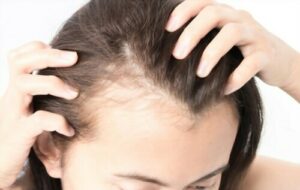 Studies on women have also proved promising. One study in 2021 carried out by Cairo University and consisting of 60 female subjects with AGA, tested the results of topically applied pumpkin seed oil, over a 3 month period. They tested the hair shaft diversity, and numbers of mature (terminal) and immature (vellus) hairs. The hair shaft diversity decreased, as well as the mean number of vellus hairs, whilst the number of terminal hairs increased. A different study indicated increased growth from topical application after just three weeks.
Studies on women have also proved promising. One study in 2021 carried out by Cairo University and consisting of 60 female subjects with AGA, tested the results of topically applied pumpkin seed oil, over a 3 month period. They tested the hair shaft diversity, and numbers of mature (terminal) and immature (vellus) hairs. The hair shaft diversity decreased, as well as the mean number of vellus hairs, whilst the number of terminal hairs increased. A different study indicated increased growth from topical application after just three weeks.
Lab results have also concurred that pumpkin seed oil is a potent inhibitor of DHT, and these effects are believed to be due to the high concentration of phytosterols that it contains. A previous study showed that just one of the active compounds in pumpkin seed oil, beta-sitosterol, was able to inhibit the synthesis of DHT by itself.
Further proof of pumpkin seed oil’s anti-androgenic properties and ability to prevent the synthesis of DHT is its proficiency as a treatment for benign prostate enlargement (BHP) which is also linked to DHT. Therefore, it shouldn’t come as any surprise that the two main synthetic medications most commonly prescribed for the treatment of hair loss (one applied topically and the other orally) were originally produced for the treatment of BHP. However unlike these chemical remedies which can cause side effects, including decreased libido or erectile dysfunction (oral application treatment) or scaling and itching of the scalp (topical application treatment), there are no side effects with the natural goodness of pumpkin seed oil.
Treatment
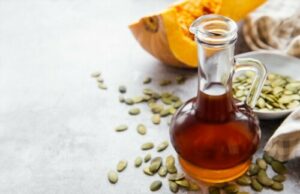 The recommended oral dosage is 1 tsp twice a day which can be taken by itself, drizzled over a salad or pasta, or added as a flavouring to soups, dressings, dips, health shakes and smoothies.
The recommended oral dosage is 1 tsp twice a day which can be taken by itself, drizzled over a salad or pasta, or added as a flavouring to soups, dressings, dips, health shakes and smoothies.
Additionally, for enhanced results you can also apply topically to the hair and scalp once or twice a week. To use, massage a small amount of oil into the scalp and distribute evenly over the entire length of the hair using a wide tooth comb, leave for 30 minutes before shampooing. For best results use once a week. You may also add a couple of drops of pumpkin seed oil to your usual hair products for extra effect.
Topical application will also afford your hair the following benefits:
Pumpkin Seed Oil Offers Antioxidant Support
Pumpkin seed oil contains a diverse range of antioxidants including mineral antioxidants, phenolic antioxidants, carotenoids, lignans and a wide variety of different forms of vitamin E, including two recent discoveries, which elevates the antioxidant capacity above that of other foods and oils. This helps to protect the hair from environmental pollutants such as air pollution or sun damage, increase blood flow to ensure cell regeneration, maintain collagen in the connective tissues of the hair follicles, and promote healthy hair growth.
Pumpkin Seed Oil for a Healthy Scalp
The nutrient rich oil is a proven antibacterial and antifungal agent, which along with its anti-inflammatory properties, and it’s abundance of sulphur and zinc, helps in the treatment of conditions such as dandruff, dermatitis, eczema and psoriasis, and promotes strong and healthy hair follicles. A healthy scalp is vital for healthy hair, its growth and length retention. Pumpkin seed oil can help to prevent hair loss caused by clogged follicles and dead-skin build up.
Pumpkin Seed Oil is a Natural Moisturiser & Defrizzer
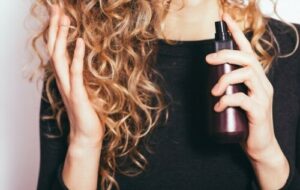 The rich fatty acid content of pumpkin seed oil makes it an effective moisturiser. By penetrating the cuticle of the hair, linoleic acid works from inside out, keeping the strands hydrated and nourished, helping to make curls more manageable and reducing frizz. To make a defrizz spray, simply add a few drops of oil to a spray bottle of water, and spray and go.
The rich fatty acid content of pumpkin seed oil makes it an effective moisturiser. By penetrating the cuticle of the hair, linoleic acid works from inside out, keeping the strands hydrated and nourished, helping to make curls more manageable and reducing frizz. To make a defrizz spray, simply add a few drops of oil to a spray bottle of water, and spray and go.
Pumpkin Seed Oil Aids in Hair Growth and Strength
Pumpkin seed oil contains vitamin B-7, also known as biotin, which helps in the production of keratin, the primary protein which makes up the hair strands. It also contains various amino acids which can help to fill the gaps in broken or damaged hair. Together with the other various nutrients and fatty acids, these help to promote hair growth and help the hair retain its strength and this aid in length retention.
Pumpkin Seed Oil Adds Shine
As with most botanical oils, pumpkin seed oil coats the hair with a light-reflecting layer, eliminating dullness and giving the hair an incredible shine.
Pumpkin Seed Oil Protects
Pumpkin seed oil will leave a protective coat on your hair, helping to detangle the hair, and giving protection against styling, sun and chemical damage.
Stop pulling your hair out over concerns about thinning or balding hair. The seeds from the humble pumpkin, now recognised as superfood due to it’s high content of beneficial nutrients, could just be the remedy you’re looking for. Best of all, it’s 100% natural, so no harmful chemicals to potentially ruin your health. Furthermore, it’s highly nutritious and delicious, so it may become your new favourite dressing for salads and pasta.
Just remember that there are no synthetic chemicals in pumpkin seed oil to artificially enhance the hair to give an instant short-term quick-fix. What you see is what you get! All results are genuine natural changes to the hair condition and permanent, so it may take several weeks before they are noticeable. Be patient and you’ll be rewarded with hair regrowth and overall hair that is strong, moisturised, glossy, protected, and in optimum health.
